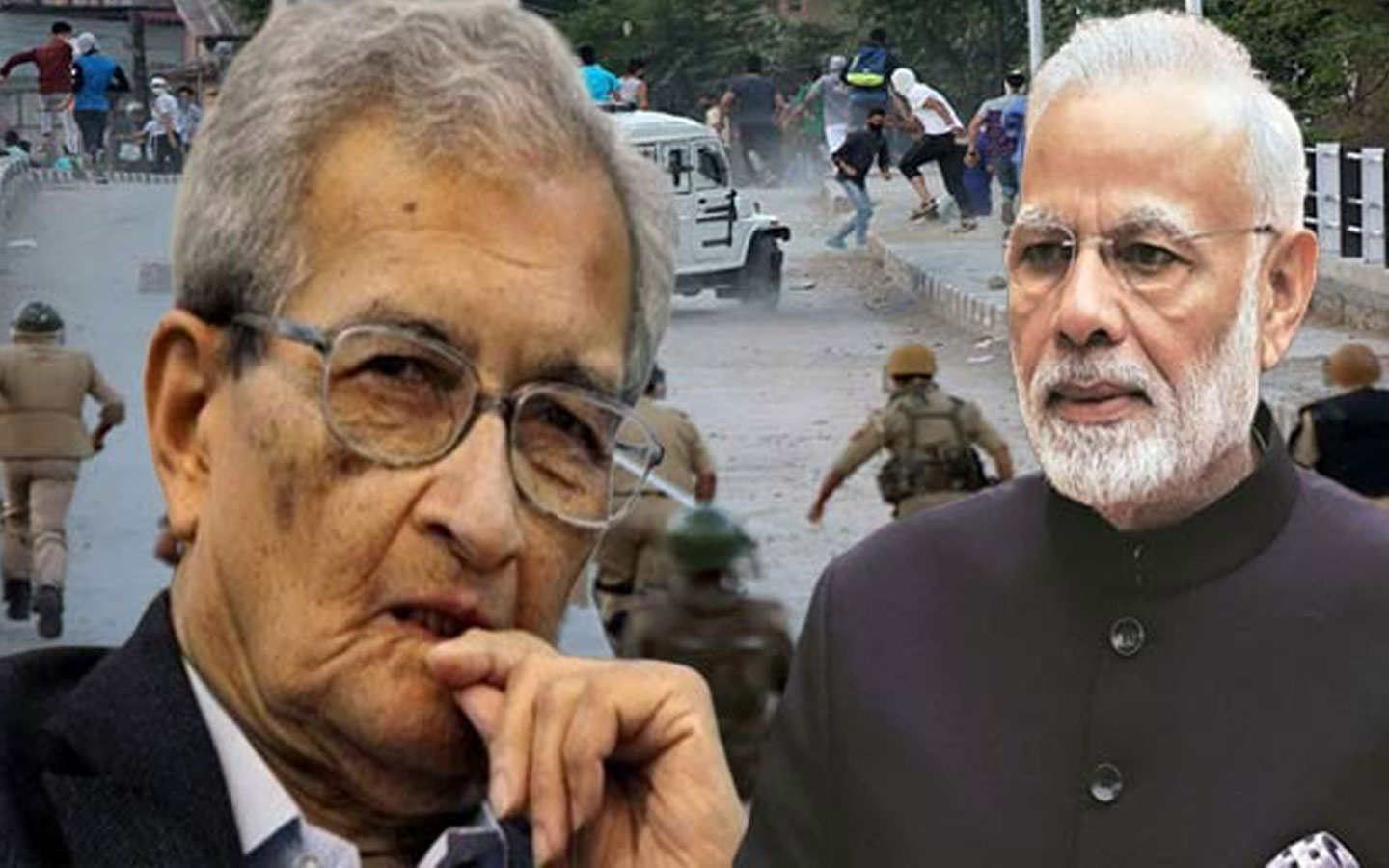Indian Nobel laureate criticizes decision to revoke IoK’s special status

NEW DELHI (92 News) – Indian economist and Nobel laureate Amartya Sen has criticised his government's move to revoke Article 370, saying that India had lost the reputation of being the world's first non-Western country to adopt a democratic system.
In an interview with ‘NDTV’ channel, the 85-year-old economist said, “I don’t think ultimately you will have any resolution in Kashmir without democracy.”
“As an Indian, I am not proud of the fact that India, after having done so much to achieve a democratic norm in the world – where India was the first non-Western country to go for democracy – that we lose that reputation on the grounds of action that have been taken,” Indian Nobel laureate said.
He added that it should have been up to Kashmiris to decide on the rights of land use in the state as it was their land and they have a legitimate point of view.
Criticising the government’s decision to arrest and detain the Kashmiri leadership, Sen said, “I don’t think you will ever have fairness and justice without hearing the voices of the leaders of the people and if you keep thousands of leaders under restraint and many of them in jail, including big leaders, who have led the country and formed governments in the past, you are stifling the channel of democracy that makes democracy a success.”
He also criticised the imposition of a lockdown — that has been in place for over two weeks — in the occupied region as well as the arrests of Kashmiri leaders under the pretext of preventing violent protests in the valley, calling it a “colonial excuse”.
"That’s how the British ran the country for 200 years. The last thing that I expected when we got our independence [...] is that we would go back to our colonial heritage of preventive detentions."
On Aug 5, the Indian government repealed Article 370 of the constitution that granted occupied Kashmir special status and prevented non-Kashmiris to buy property or start business in the region. A strict curfew and communications blackout is still in place in the region while international news agencies have been reporting protests held by residents.







